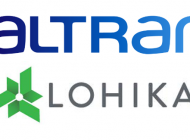UPDATED: Moldova is officially the lowest cost nearshoring location in Central and Eastern Europe. A fully loaded cost of an average software developer in Moldova is below $3,000 per month, and this includes office space and other overhead costs. Here is more about Moldovan software development outsourcing industry.
If you haven’t heard of Moldova, it is a small Eastern European country squeezed between Ukraine and Romania, with a population of 3.6 million inhabitants. The country has a long history of struggles to free itself from Russia’s occupation since early 19th century.
Consequently, Moldovan population lived through ethnic tensions and even a war in 1990s, and this may explain the level of poverty it currently experiences. At GDP per capita of only $2,500 is it is the poorest country in Europe. According to the Global Competitiveness Index, Moldova is ranked lowest for innovation in the CEE region.
Moldavan IT industry: low costs, tax advantages, and shortage of talent
Yet, the IT industry in Moldova is considered to be the most dynamic in the country. According to Serghei Goloborodico of Pentalog office in Chisinau, IT and software development outsourcing industry accounts for 10 percent of the budget contributions. The local newspaper Independent Moldova reported, that the tax revenue contributed by the industry have quadrupled since 2005 and the total revenue of the IT industry has grown from $1.7 to $7.4 million over the period from 2005 to 2010.
We at GoalEurope have done our own research, which revealed Moldova as by far the most attractive location for a software development center, when compared to other Eastern European countries based on cost, not the least because of the government tax incentives for the profitable IT companies. However, the talent is scarce, which makes it really hard to leverage cost and tax advantages in Moldova.

Moldova is also known for its grapes and wines.
Until recently tax benefits have resulted in industry growth and increase in its profitability. Incentives related to mainly payroll taxes, which lead to many international firms opening up their captive development centers. The duration of tax-free period came to an end of 2011, but the industry is actively pushing the government to continue offering incentives to prevent capital and brain drain out of the country.
In December 2011, we have compared costs of running a small team of 13 software developers in Ukraine, Belarus and Moldova. The calculations included people cost (salaries, payroll taxes, bonuses and benefits) of a team, built of .Net and Java developers, ranging from 1 to 8 years of working experience. Other expenses such as office rental, administrative services and IT cost were also included. The resulting total cost of captive development center per person per month is this:
This calculation took into account tax benefits that Belarusian and Moldovan governments provide to established firms. A newcomer will have the total cost of employment rate of 46% over the net salary in Belarus, and 63% in Moldova, but this goes down to 9% and around 18% respectively after a preferential status is reached. Should tax incentives disappear, the cost of creating fully owned software development center in Moldova will be almost the same as in Kiev, Ukraine, a country with a much larger IT labor pool. Ukraine, which up until the end of 2011 allowed companies to avoid paying payroll taxes altogether, has recently introduced an obligatory 5% payroll tax for so-called “contractors” (it may grow in the future).
Brain drain: huge problem for software development industry in Moldova
A serious problem of Moldovan IT industry is an insufficient labor pool. Every year, Moldovan universities such as the Technical University of Moldova and the State University of Moldova prepare 2,000 IT graduates, but the demand for programmers continues to grow. In 2011, IT salaries in Moldova have increased by 10 to 15 % as a result.
Some young people leave to work abroad. Moldovan is technically the same language as Romanian, while Russian and Ukrainian are recognized regional languages in the country. According to USAID, in 2007 remittances from Moldovans working abroad accounted for 37 percent of the country’s GDP, which is the highest percentage in the world, and 25 Moldovan households have at least one member of the family working abroad.
Another challenge of IT industry in Moldova is software piracy. According to IDC, Romania local companies pay for only 10 percent of software programs that are being used, which is believed to slow down country’s software industry. Ironically, the development center of Polish company Red Sky is based in Moldova. Red Sky is known for its file searching service FilesTube which has a global Alexa traffic score of 127 ranking above TechCrunch (FilesTube searches for files in the networks like Megaupload as stated on its own website).
Despite these challenges and an unattractive score for innovation in the World Competitiveness Report, in September 2011 the government announced a launch of a new ambitious project called Moldova Cyber City, what is supposed to become an analogue of Skolkovo (since then no further news were released).
Also, Moldova has its own startup accelerator called Garage, which invests up to 40 000 Euros in a project. In its blog, the accelerator organizers discussed such business ideas as online ticket sales and a mobile taxi ordering service, but we are yet to learn about the first Moldovan tech company to become a global player.
As for software development outsourcing, attractive as it may seem in the short term, Moldova has significant challenges retaining its cost advantage over neighboring Ukraine and Belarus. Given a relatively small size of its population, proximity to Romania (for example, Chisinau is only 130 kilometers away from Iasi), the brain drain and uncertainty over the tax incentives it may soon lose its current competitive edge.
So perhaps the idea of Cyber City is a good thing. Tiny Estonia is boxing way above its weight when Internet companies and innovation are concerned, but it all began more than ten years ago with Kazaa. So maybe Red Sky Group has a chance to make a difference?











